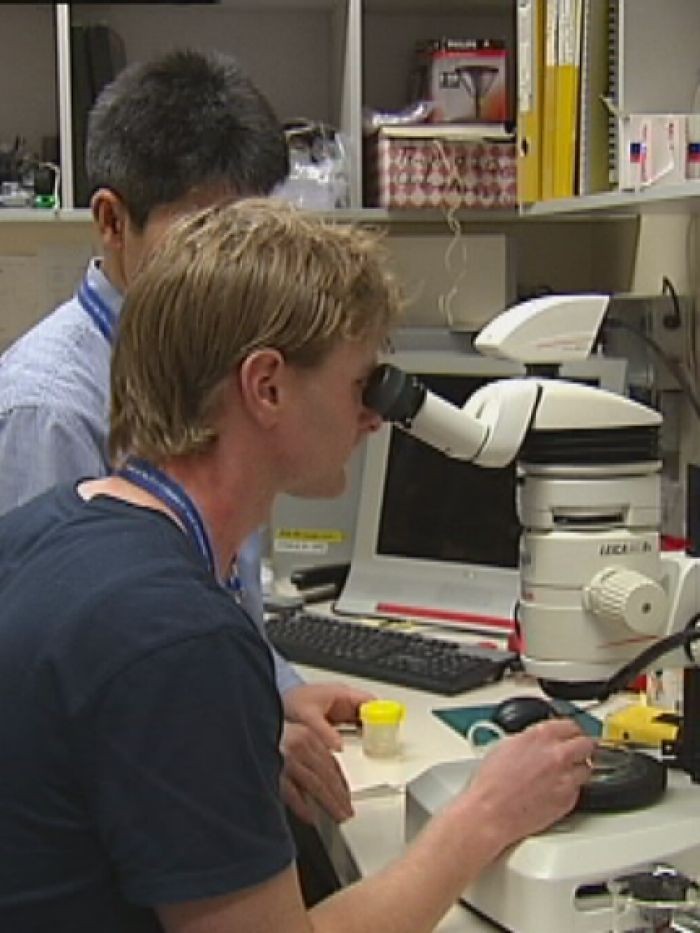Industry funds invest in US due to lack of Australian infrastructure ABC News (Australian
Post on: 13 Июнь, 2015 No Comment

Photo: Garry Weaven says many infrastructure projects are too slow to get off the ground. (Giulio Saggin: ABC News)
As it invests $7.5 billion in a US toll road, the chairman of IFM Investors has lamented the lack of infrastructure investment opportunities in Australia.
IFM Investors is a fund manager owned by 30 not-for-profit Australian super funds, generally industry funds.
IFM Investors announced overnight that it has bought the rights to operate, maintain and collect the revenue from a toll road in the US state of Indiana for $US5.725 billion ($7.5 billion).
However, IFM’s chairman Garry Weaven told the ABC that his company would be keen to direct that money towards Australian infrastructure, if there were projects available to invest in.
IFM has been for a long time investing in infrastructure in Australia and, in the last several years, has been putting a lot more effort in offshore, simply really because of the lack of available deal flow in Australia and the quite substantial demand from our Australian clients for infrastructure investment, he said.
A lack of infrastructure projects to invest in is incongruous with the rhetoric of the current and previous federal governments and numerous state governments which have claimed to be nation builders.
However, Mr Weaven said the rhetoric often takes too long to be converted into construction.
There’s a lot of stuff on the drawing board and has been for a long time. but it does seem to take us a long time to get the political consensus and the drive and leadership to get projects off the ground in Australia, he said.
On the other hand, fund managers have often been accused of picking the relatively low hanging fruit of established infrastructure and ignoring riskier investments in new projects.
While there have previously been suggestions for governments to introduce special infrastructure bonds or tax breaks, Mr Weaven said that should not be necessarily to attract greenfields investment.
We’ve never asked for any gimmicky bonds or special tax breaks for that asset class, it’s really a matter of putting the deals together, he argued.
All financial investors will probably see it easier to look at existing assets, but that’s no reason why our interests should be confined to that. It is very much about how the Government, with their advisers, can package a deal so that the risks and returns are appropriate.
Costello’s ‘parting gift to the rich’ may ‘undermine’ super
While Mr Weaven sees a huge role for super funds in the nation’s infrastructure development, he also sees a significant threat to the system due to its inequality.
Writing for financial analysis website Cuffelinks. Mr Weaven today described the Howard government’s decisions under then treasurer Peter Costello to abolish earnings tax on super in the pension phase and raising the amount that could be contributed to super with a tax concession as a parting gift to the rich and one of the worst pieces of public policy in living memory.
The former union official and one of the architects of the compulsory superannuation said the tax concessions are now skewed the wrong way with the potential to undermine the whole system.
People are deferring expenditure for a very long time in order to build a great national savings and investment pool and in order to get a decent retirement income and not be dependent on the whim of future governments about what they may or may not be able to afford on the aged pension, he observed.
So it needs to be concessional, but the concessions need to be reasonable, they need to be targeted at those who most need them, and that’s not the case at the moment, and so some moderate and modest reform is needed in that area in order for the credibility of the system.
The superannuation pool is the basis for what will be our greatest industry of the future. a real comparative advantage in financial services.

Garry Weaven, chairman IFM Investors
Mr Weaven said that, aside from rolling back some of the more generous tax breaks for high income earners, there is also an argument for limiting the quantum of lump sum withdrawals for those with large super balances.
That would prevent wealthy people from using up their super savings quickly to fund asset purchases and large lifestyle expenditures before falling back on part-pensions and the financial concessions they bring.
Certainly, when you get up into the larger sums, there is justification for pushing very hard for that to be taken as an income over a person’s lifetime, he acknowledged.
In a shot across the bows of those in the super sector opposed to any tinkering with the system, Mr Weaven warned that a failure to improve the equity of the system may lead to its ultimate collapse.
He said that would in turn be a disaster for Australia’s burgeoning financial services sector.
At $1.8 trillion, or thereabouts, the superannuation pool is the basis for what will be our greatest industry of the future — it actually creates the basis for this country to build a real comparative advantage in financial services internationally, Mr Weaven observed.
On the super hot topic of the week — the Treasurer Joe Hockey’s idea of possibly allowing first home buyers to withdraw part of their retirement savings for a housing deposit — Mr Weaven said it was an old idea pushed by the real estate and banking lobbies.
He also echoed the sentiments of other critics — including Peter Costello. Paul Keating and David Murray — who said it made little sense in light of superannuation’s key objectives.
You issue the intergenerational report, which really focuses on the long-term issues of people living longer and having less people in the workforce, more people to support in retirement and greater need for healthcare as well as retirement income, and in the next breath you talk about taking money out of the retirement income system. That was bizarre, Mr Weaven added.
First posted March 12, 2015 17:31:30














